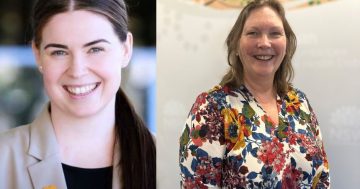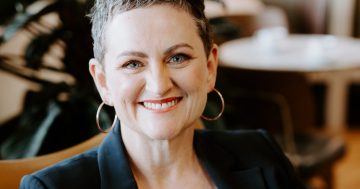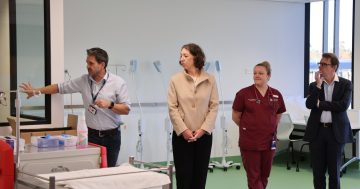Melanie Burgess* has discovered an industry where the most women make CEO and spoke to some women passionate about encouraging other women to pursue leadership.
 More than one in three chief executives in healthcare are women — the highest proportion in any industry.
More than one in three chief executives in healthcare are women — the highest proportion in any industry.
Workplace Gender Equality Agency data revealed women made up 37.5 per cent of healthcare and social assistance chief executives last year, compared with 16.5 per cent across the workforce.
Still, one healthcare company has gone a step further.
For Calvary Health Care in South Australia, all three chief executives of its four hospitals are female.
The women have come to the top job via different paths but all are passionate about encouraging other women to pursue leadership.
Sharon Kendall, chief of Calvary North Adelaide Hospital, began her transition out of clinical work when she completed a Master of Business Administration at the University of Adelaide in 2001 and became an administrator.
“I pledged I was never going to be just a numbers person or a suit behind a desk, but would be a health administrator whose heart never lost sight of the people who sat behind the numbers,” she said.
“In 2002 I left the public health sector to cut my teeth in the private sector [and] came to see how important culture and relationships are.”
She became an executive member on boards and said this whet her appetite to lead.
Calvary Central Districts chief, Emma Poland had a financial background as a chartered accountant, with 20 years’ experience in Adelaide as well as interstate and overseas.
She spent 10 years in executive roles in health and education, and four years as Financial Director at Calvary Adelaide and Central Districts.
“I never aspired to be a CEO, it wasn’t a goal I had in mind, but now I am in the role and reflect on my path it seems that I had been working my way towards this — it just evolved,” she said.
Ms Ielasi said mentorship was essential to supporting women at the beginning of their careers to consider leadership roles and challenge the status quo in organisations.
“Women appear to be more self-critical in the way they lead people and question themselves on decisions,” she said.
Ms Kendall said her journey to leadership was supported by people who saw potential and encouraged, mentored and coached her.
* Melanie Burgess is Careers Deputy Editor at News Corp Australia in Brisbane. She tweets at @MelanieBurgess.
This article first appeared at www.news.com.au.











